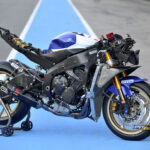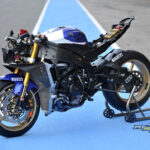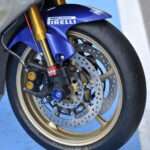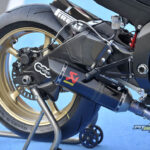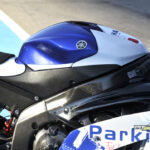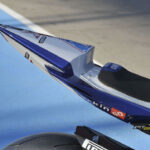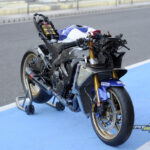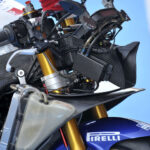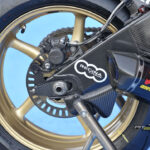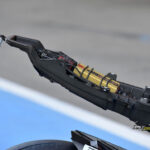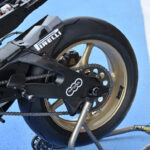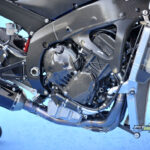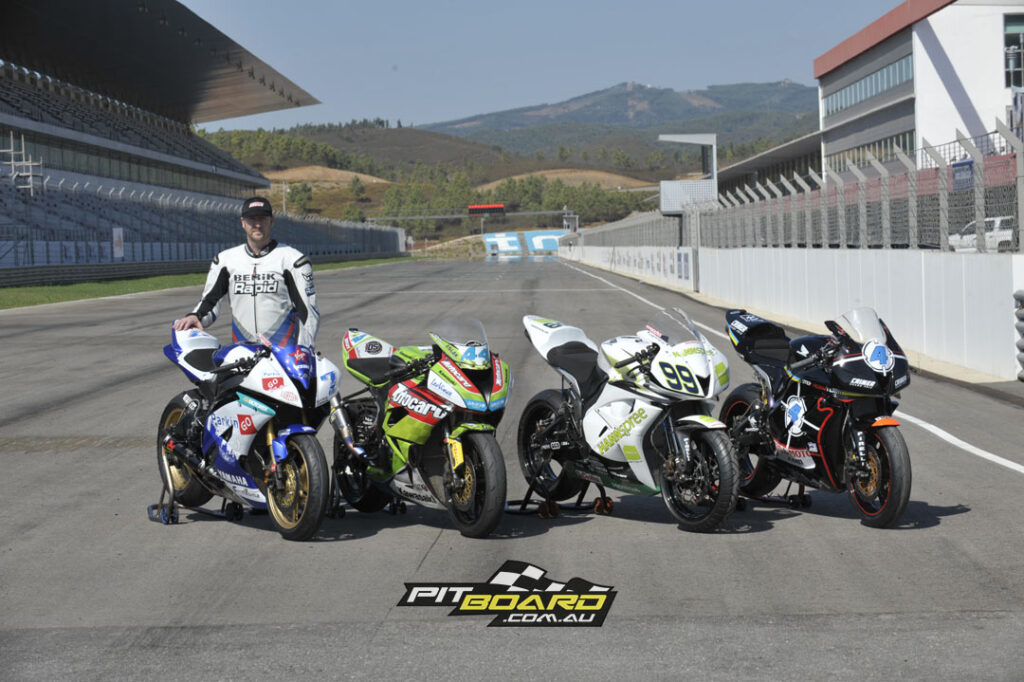Chaz Davies historically wrapped up the WSS title just over 10 years ago on the now legendary (and becoming collectable when talking early models) phased out for the street YZF-R6. At the season finale in Portugal in 2011, Jeff tested the amazing ParkinGO racer…
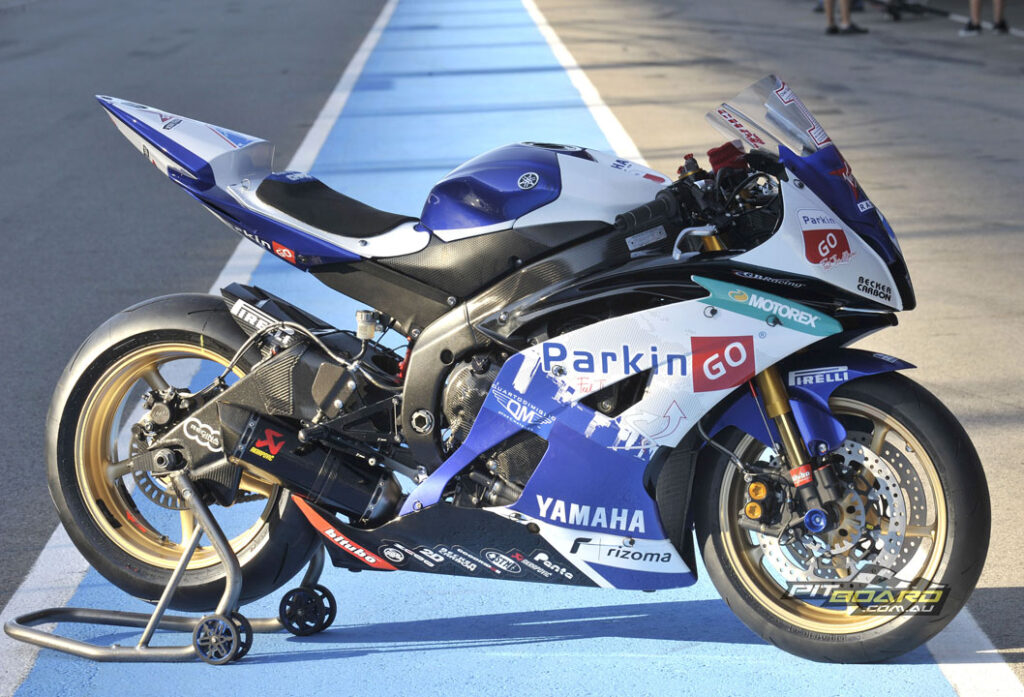
Check out our other race bike tests here…
Chaz had wrapped up the WSS title the previous round to the finale at Portimao, where I rode the bike on the Monday after the race. In a more relaxed mood but typically in winning form, Davies took victory from Salom and Ellison in a stunning race the day before I rode the bike. It was a fitting last WSS race for the then 24-year-old, who went on to be a WSBK long termer, following his retirement at the end of 2021.
In it’s 12th year of development and with this particular machine in its second year (2009 with Cal Crutchlow, 2010 a year off, back for 2011), the then current factory R6 was a proven winner. Davies alone had given the bike six victories on his way to title glory. So when I walked into the ParkinGO pit garage with my lid under my arm and a signed waiver in my hand, I knew I was on for a good time…
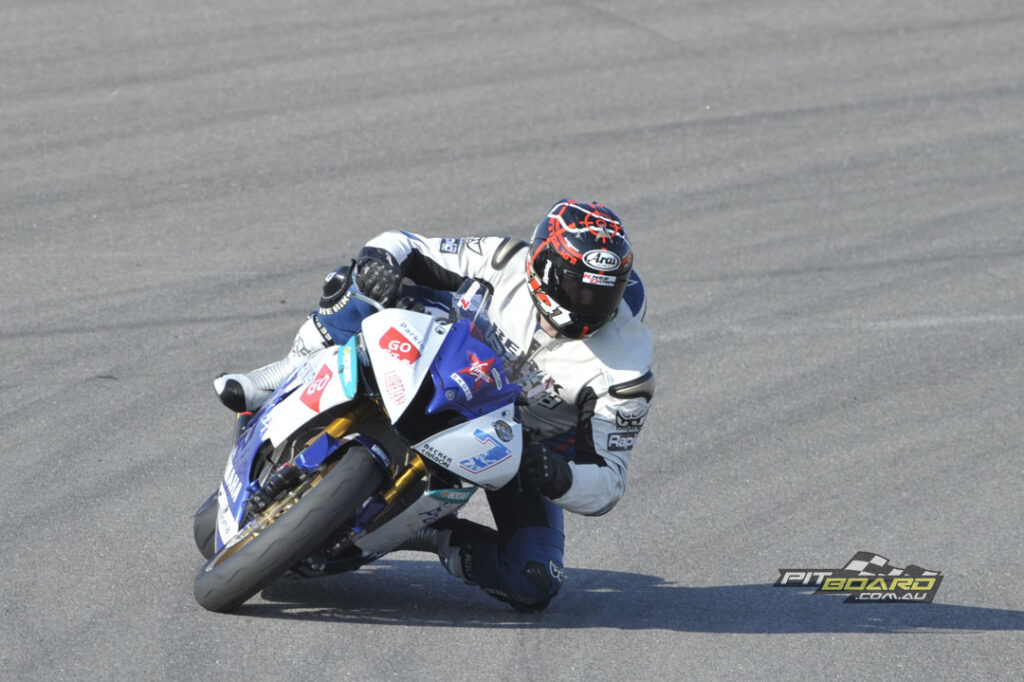
The first thing I noticed about Chaz’s bike was how much it felt like a normal R6. The fuel tank, bodywork, all very familiar. The ride height both ends is tall as expected but not as radical as I anticipated. The ‘bars are really wide and flat, very close to a flat bar like an MX bike. The seat position is fantastic – close to the bars but there is still a comfortable reach. And the seat-to-peg distance is roomy. Overall a perfect fit for me. I’m the same height as Chaz so it makes a change from me trying to fit into the typical jockey sized bikes.
The bike was fitted with 30 per cent worn tyres, which was OK, and warmed up and ready to go. TC was set to level 3, which is as Chaz raced it the day before. Everything else was as per Sunday. The bike naturally felt like a racer as Yamaha developed it with racing only in mind….
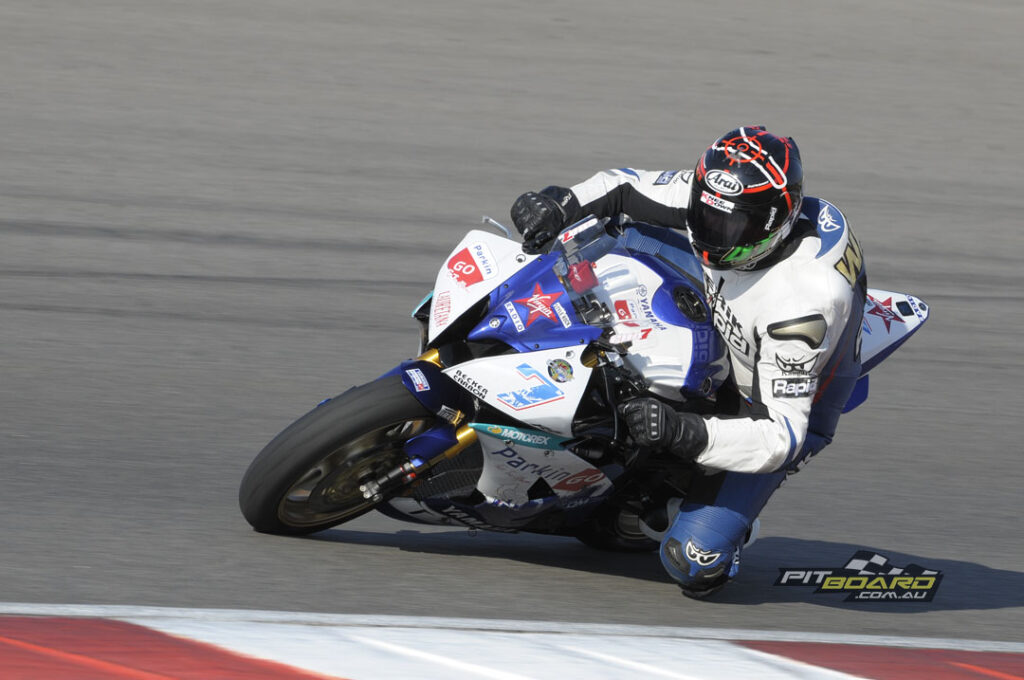
Rolling out of pit lane and accelerating towards turn one the R6 spun up really quickly. The gearbox shift was amazing and was the fastest quickshifter around for the era. After a few corners to settled in, put my head down and started to push. The engine was a screamer, it builds from 12,000rpm but the business end is up around 14,000 – 16,000rpm where things get very rapid.
Despite the peaky nature, once in the top end rev band the bike was electric smooth and the TC very subtle. The power didn’t tail off at all. The top end was just stunning, particularly compared to the Ten Kate Honda CBR600RR and much more than the MotoCard Kawasaki ZX-6R I rode on the same day.

The gearbox ratios felt closer and more competition-like than the other SS bikes and the shifter is great. Downshifting is simply a matter of clicking back through the gears – the engine blips itself and the clutch slips into turns accordingly. Run into corners was stunning and corner speed is 250 GP-like.
Initial throttle opening was silky smooth and the bike really was so easy to ride. It just felt like a normal track R6 but with stunning suspension and massive power. On the gas, even in the upper gears, the bike loved to wheelstand, so I found myself using a lot of rear brake over the crest at the back of the circuit.
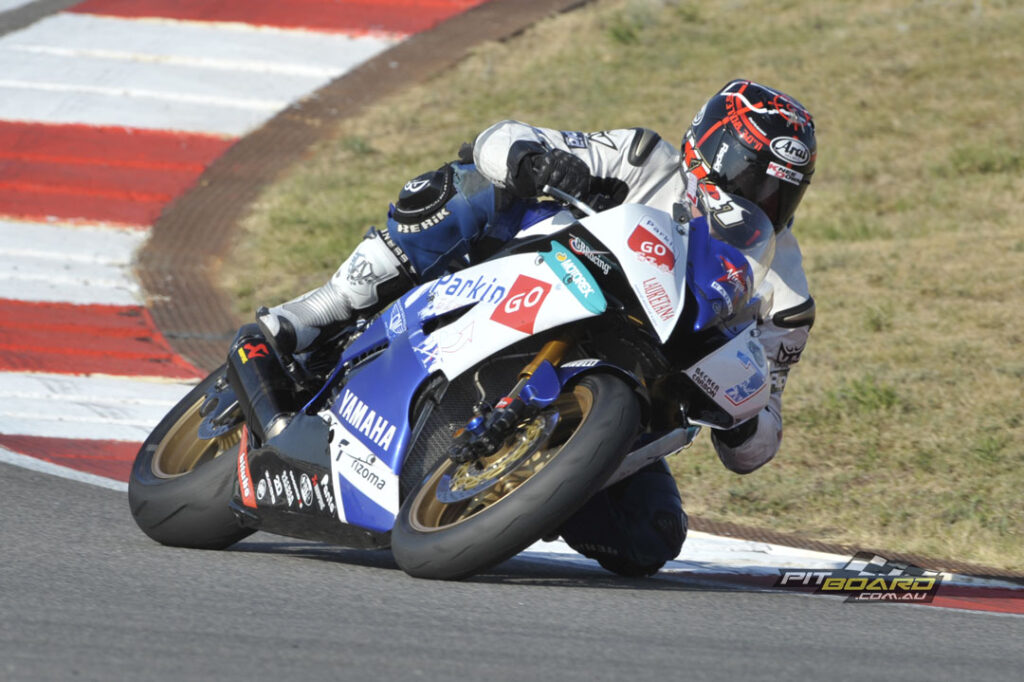
The brakes on the bike were not as powerful as expected. Chaz may prefer a low ratio in the master-cylinder, as there was a lack of initial bite and the brakes needed a big squeeze to pull up. This is probably not such a bad thing in the heat of battle on such a short wheelbase bike. Chaz has a tendency to back bikes into turns and an abrupt initial bite would exaggerate that style.
Initial turn-in is fast, the best steering of all the bikes I sampled on the day, and the bike fell onto its side very quickly. Lean angle is incredible and the bike tracked through turns with the poise of a long wheelbase machine while still having the benefits of the agility and line changing ability that comes with the short wheelbase.
Considering just how well the bike turned in, it makes you think about what amazing things riders and engineers can get a bike to at world level.
The rear spring was really, really hard and there was some small rear chatter as I was not pushing through the stroke anywhere near as much as Chaz would be. Using full throttle off all of the corners on the bike and trusting the fantastic chassis and electronics was a great buzz and the speed down the chute sensational.
Overall, I was surprised at how easy the Chaz Davies ParkinGO world supersport championship winning R6 was to ride for a normal human like me. It was very exciting, don’t get me wrong, but so well sorted that it was easy. I can clearly see how a talented rider like Chaz Davies could steer this thing to so many victories and a title. It’s a winner in every sense of the word…
SPECIFICATIONS – 2011 Chaz Davies ParkinGO YAMAHA WORLD SUPERSPORT TEAM YZF-R6
Power: Over 145hp
Wet weight: 158kg
Fuel Capacity: 17.3L
Engine: Liquid cooled DOHC in-line-four 16-valve four-stroke
Bore and stroke: 64 x 42.5mm
Displacement: 599cc
Compression ratio: N/A
Fuel Delivery: YCC-T, standard throttle-bodies and injectors, Magneti Marelli
Exhaust: Akropovic
Gearbox: Close ratio race kit
Clutch: Wet, multi-plate slipper
Frame type: Aluminium die-cast Deltabox
Wheelbase: Adjustable
Rake: N/A
Trail: N/A
Front suspension: Stock R6 with Ohlins internals
Rear suspension: Ohlins TTX
Front brake: Stock Tokico
Rear brake: Stock Tokico
Front wheel: Stock Yamaha R6
Rear wheel: Stock Yamaha R6
Front and rear tyre: Pirelli
Instruments: Magneti Marelli race dash


